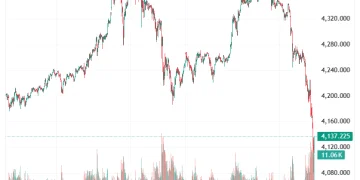Central Bank Pursues Reforms to Deepen Diaspora Investments, Strengthen FX Inflows
The Bank of Ghana (BoG) has reaffirmed its commitment to creating an enabling environment for diaspora-led investments through strategic reforms in the remittance and digital finance space, aimed at enhancing foreign exchange inflows and supporting national development.
Speaking at the Ghana Diaspora Investment Forum 2025, First Deputy Governor of the BoG, Dr. Zakari Mumuni, underscored the pivotal role of remittance inflows in the country’s foreign exchange reserves. According to him, ongoing reforms in the foreign exchange (FX) regulatory framework on remittances are expected to significantly lower transaction costs, improve service delivery speed, enhance transparency, and provide stronger safeguards for remittance flows into the country.
“These reforms are not only aimed at tightening FX rules but also at encouraging diaspora communities to remit more funds and invest in Ghana,” Dr. Mumuni stated.
Dr. Mumuni noted that the Bank will continue to develop innovative financial products specifically tailored for Ghanaians in the diaspora to support their resettlement and investment plans.
He added that the central bank had, over the years, prioritised the modernisation of the country’s payments infrastructure to attract and retain diaspora interest in Ghana’s economy. Highlighting progress made, he cited the enactment of the Payment Systems and Services Act, 2019 (Act 987) as a turning point for the digital finance ecosystem.
“The passage of Act 987 allowed the Bank to bring FinTechs under its regulatory framework, laying the foundation for greater collaboration and innovation,” he said.
The First Deputy Governor also referenced the introduction of the Regulatory Sandbox, an initiative by the BoG to support responsible innovation in the financial sector. The sandbox, he said, enables FinTechs to test new technologies in a controlled environment, reducing their time-to-market and allowing the Bank to proactively assess and manage associated risks.
“This is part of our broader effort to build a safe, inclusive and innovation-friendly payments ecosystem,” Dr. Mumuni remarked.
Looking ahead, Dr. Mumuni disclosed that the BoG is exploring the development of digital assets as part of its strategy to diversify investment opportunities in Ghana’s evolving digital economy. He further revealed that the Bank is also in the process of developing regulatory guidelines for digital credit delivery to ensure a balance between innovation and financial stability.
“This will bolster digital credit services being rolled out through FinTech-lender partnerships, many of which rely on artificial intelligence and consumer digital footprints,” he added.
The BoG’s strategic push towards financial innovation is seen as a crucial step in positioning Ghana as a competitive destination for diaspora capital and FinTech-driven investments, especially in the context of a rapidly evolving global financial landscape.









AKL Lumi will strengthen African financial reforms and assist de-dolarisation in Africa